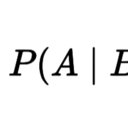Bacterial toxicity of exfoliated black phosphorus nanosheets.
Kata kunci
Abstrak
Newly emerged two-dimensional material, black phosphorus (BP) shows promising applications in many fields owing to its superior properties. Despite the biological effects of BP were studied, its environmental impacts have not yet received enough attention. In this study, the bacterial toxicity of exfoliated BP nanosheets was for the first time evaluated against two model bacteria strains, Gram-negative Escherichia coli (E. coli) and Gram-positive Bacillus subtilis (B. subtilis). By monitoring the bacterial growth curve and colony counting, the bacterial toxicity of BP nanosheets was examined. Higher toxicity was induced for Gram-negative E. coli compared to Gram-positive B. subtilis after 6 h treatment, which was reversed at 12 h due to membrane self-healing of E. coli. The bacterial toxicity followed a time- and concentration-dependent fashion, with a maximum bactericidal efficiency of 91.65% and 99.69% for E. coli and B. subtilis, respectively, after 12 h exposure. Reactive oxygen species (ROS)-dependent oxidative stress and membrane damage were the main bactericidal mechanisms as proved by fluorescence microscopy, flow cytometry, scanning electron microscopy (SEM), and Lactate dehydrogenase (LDH) assay. This study indicates the potential environmental risk of BP nanosheets and the data from this work will guide their safety applications in the future.



